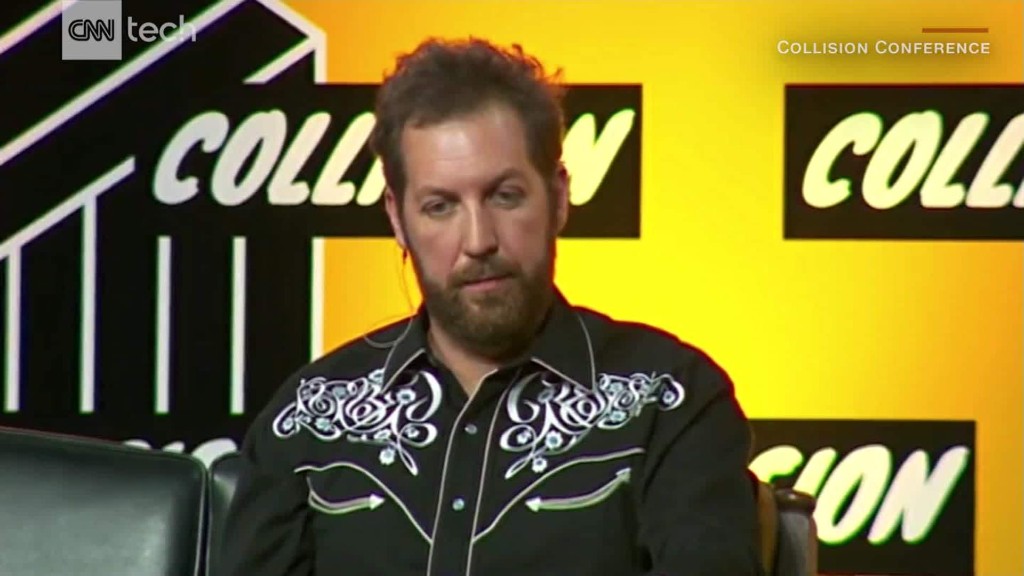
Even flying cars weren't enough to turn the page for Uber.
Last week, Uber teased ambitious plans to develop a network of flying cars by 2020. The press event briefly redirected the media's attention to the skies at a time when Uber is bombarded with PR crises on the ground.
But the wheel of PR misfortune has resumed spinning.
Uber is now reportedly the subject of a criminal probe from the Department of Justice over a tool it built to help drivers dodge law enforcement in cities like Portland, Oregon, where Uber was not allowed. Uber and the Justice Department declined to comment on the investigation.
"We support the criminal investigation by the United States Department of Justice into Uber's use of the Greyball tool to evade regulators, and will continue to move forward with our own efforts to subpoena the requested records from Uber," Portland Commissioner Dan Saltzman said in a statement.
The ride-hailing startup also entered the courtroom this week to defend itself against charges it stole trade secrets and intellectual property for its self-driving car business from Google's (GOOGL) Waymo. The case risks undermining what Uber describes as "potentially ... the most lucrative business in history."
And if that's not enough, Uber CEO Travis Kalanick recently bailed on appearing at a big tech conference amid an ongoing internal investigation into sexual harassment allegations made by a former employee.
Call it the new normal for Uber. Once the unstoppable darling of Silicon Valley, the startup has been tripped up by a series of stumbles this year. It is now besieged by lawsuits, executive departures, resurgent competitors and bad headlines.
"Public perception is shaken," Mike Walsh, an early Uber investor, told CNNTech. "But I'm hopeful and confident that'll come back."
Related: Uber and Waymo face off in court over stolen self-driving tech
The damage has been months in the making. Uber was hit by a viral boycott in late January after it was perceived as breaking up a strike of taxi drivers who were protesting President Trump's travel ban. The next month it launched an "urgent" investigation in response to sexual harassment allegations. Weeks later, Kalanick was caught on camera arguing with an Uber driver.
Along the way, there have been a series of executive departures, including president Jeff Jones, who quit because of concerns over the firm's management culture, and Rachel Whetstone, head of policy and communications.
It "sends a bad signal to other employees and potential hires," Walsh said. "A company can't grow and excel without top talent, so this is concerning to me."
Meanwhile, some of Uber's competitors are benefiting from its stumbles. Lyft, Uber's top rival in the U.S., recently raised $600 million in funding and said it experienced a 60% increase in new passenger signups the week after the Uber boycott.
"Lyft was doing well before Uber shot itself in the foot," Michael Moe, a Lyft investor, told CNNTech in an interview last month. "But certainly those issues at Uber... have created an acceleration to Lyft's business."
That doesn't mean Uber's drivers are suddenly fleeing the service. Harry Campbell, a driver for Uber and Lyft who runs a popular blog for drivers in the industry, said "Uber is just as busy as ever for drivers."
But the string of public setbacks does raise questions about Uber's long-awaited IPO. It has raised more than $10 billion in funding. The company has stayed vague on timing for going public, but IPO expert Lise Buyer suggests its valuation could take a hit when it does.
"Can a company with a black eye or five go public? Depending on what those errors were and how convincingly the problems have been solved, absolutely yes," said Buyer, an IPO adviser with Class V Group who helped take Google public. "But, generally, there is a cost."

